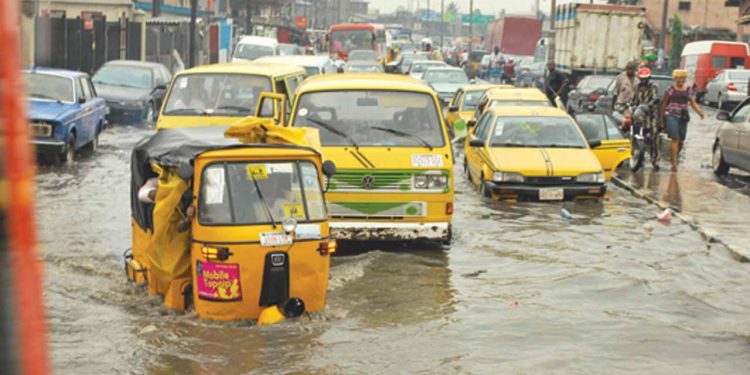The Lagos State Government has called a meeting of all important stakeholders to assess the state’s preparedness for any eventuality in response to residents’ renewed concerns about the effects of widespread, massive flooding. The meeting concluded that while Lagos is not entirely immune to flooding, the state will continue to effectively manage its situation.
This is according to a press statement by Lagos state concerning the occurrence of flooding in various parts of the state seen by Rate Captain.
Based on Governor Sanwo Olu’s directive, a meeting was held at the Alausa secretariat over the weekend to address the issue.
Speaking at the meeting, the Commissioner for the Environment and Water Resources, Tunji Bello said all of the state’s enforcement agencies need to increase the scope of their oversight responsibilities. Adding that now more than ever, the enforcement impact must be felt by obstinate persons and institutions that have disobeyed the law and erected buildings on drainage alignments, flood plains, and low-lying areas.
Speaking further Tunji said that even though Lagos is a coastal city with about a third of its landmass under water, it sees flash floods following each round of heavy rains, which subsides a few hours after the rain stops.
While expressing sympathy to everyone who lost anything due to the countrywide floods, Tunji Bello stated that Lagos is continuously keeping an eye on the Ogun River, which empties straight into the Lagos Lagoon.
He claimed that the climax of the year’s rebound rainfall was expected to occur in October, according to the Seasonal Rainfall Pattern for 2022 published earlier in the year by the Nigerian Meteorological Services NIMET.
The Commissioner stated that due to Lagos State’s position and geographic location, all water from the Ogun River, Ona Ibu River, Osun River, and Sasha River that flows through numerous South West States converge at the Lagos Lagoon.
What the state is doing to manage the situation
Mr. Tunji acknowledged that to preserve the integrity of the dam, the Ogun Oshun River Basin Development Authority periodically releases rainwater from Oyan Dam, which might raise the amount of water in the Lagoon and put Lagos at risk of flooding.
He clarified that the State is also collaborating with the Ogun Oshun River Basin Development Authority to make sure that the effects of rainwater releases that pass through the Oyan dam on the locals are kept to a minimum.
Bello reaffirmed that the State is doing extensive dredging and cleaning of all primary and secondary collectors throughout the state through the Office of Drainage Services and Water Resources.
In an effort to ensure that the drains operate at their peak efficiency to be able to limit runoffs, he added, “This is in addition to the construction of new channels as well as the deployment of the quick reaction Emergency Flood Abatement Gang to free up manholes and blackspots.”











